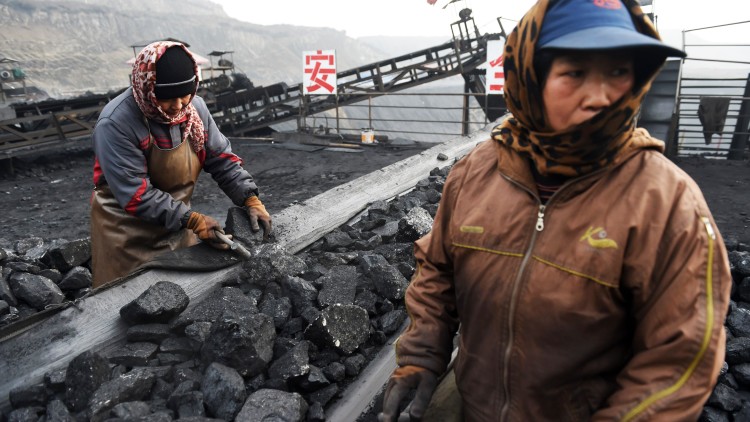Greenpeace Says China Moving Quickly to Approve New Coal Projects

According to Greenpeace, China has increased approvals for new coal power plants this year to reduce the likelihood of expensive electricity shortages.
According to a Greenpeace report, China has increased approvals for new coal power plants this year to reduce the likelihood of economically damaging electricity shortages.
China is the world's largest emitter of greenhouse gases, fueling global warming, and President Xi Jinping pledged last year, as part of an ambitious set of national climate commitments, to phase out coal use by 2026.
But activists fear these goals are in jeopardy due to the government's concentration on economic difficulties, even as the world experiences the lethal effects of climate change.
Greenpeace analysis indicates that in the first quarter of 2022, Chinese officials approved the construction of coal plants with a total capacity of 8.63 gigawatts.
According to environmental activists, this is roughly 50 per cent of the total coal-fired capacity permitted in the past year.
"Building more coal-fired power capacity will not provide energy security for China," said Wu Jinghan, climate and energy campaigner with Greenpeace in Beijing.
"China has an overcapacity of coal-fired power plants. Power inadequacies originate from poor integration of generation, grid, load, and storage."
China faced extensive power outages due to a supply shortage that increased the number of new coal plant licences later in 2021.
The use of air conditioning has ramped up recently due to heatwaves in the country.
China generates almost 60 per cent of its electricity from coal and has ordered domestic miners to raise capacity by 300 million tonnes this year.
China's cabinet, the State Council, approved in May an investment of 10 billion yuan ($1.5 billion) in coal power generation, as coal producers were under pressure to increase output before the 2025 threshold.
"An overcapacity of this one energy source is a major hurdle for energy security, as well as China's energy transition," Wu warned.
Following Russia's invasion of Ukraine, soaring global commodity prices have refocused China's attention on energy security.
As the Chinese economy stagnates under tight Covid restrictions and lengthy supply chain disruptions, the government seeks to stimulate growth with a large infrastructure construction drive that relies heavily on coal power.
China is the largest consumer and producer of coal in the world, and analysts are concerned that economic goals could derail the country's commitment to peak carbon emissions by 2030.
Source: France 24 News

